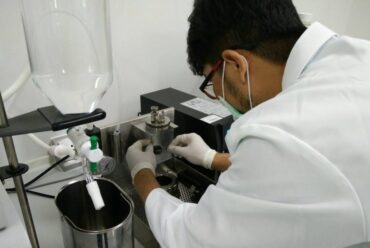What is Urea and its Important Role in Agriculture?
In a world that’s complex and ever-advancing, there’s a chemical compound that might sound simple but plays a crucial role in various aspects of human life. One such compound is urea. What is urea, and what are its benefits and uses? This article will delve into this often overlooked substance, from its use in agriculture to its impact on the environment and its benefits in the realm of health.
What is Urea?
Before we dive deeper, it’s essential to understand what urea is. Urea is an organic compound composed of carbon, hydrogen, oxygen, and nitrogen. In chemical terms, the chemical formula for urea is (NH2)2CO. It’s a compound typically found in human and animal urine, but it also plays a significant role in various aspects of life.
How is Urea Used in Agriculture?
Urea is one of the most commonly used types of fertilizer in agriculture. Its role as a primary nitrogen provider makes it an essential nutrient for plant growth. How is urea used in agriculture, and what are its benefits? Let’s explore further.
Urea Fertilizer as a Primary Nitrogen Source
Urea is a fertilizer that contains nitrogen in a form that plants can utilize. Farmers choose this fertilizer for several reasons:
- High Nitrogen Content: Urea has a relatively high nitrogen content, typically around 46%. This makes it one of the richest nitrogen sources available.
- Purity: Urea is a highly pure compound, meaning plants receive no other elements besides nitrogen when this fertilizer is used.
- Affordability: Urea is one of the most economically affordable fertilizers. This allows farmers to obtain the necessary nutrient source for plants without significant costs.
How to Use Urea Fertilizer
The use of urea fertilizer in agriculture should be done carefully and following proper guidelines. Here are the general steps for using urea fertilizer:
- Selecting the Right Dosage: The dosage of urea fertilizer should be wisely chosen based on the type of crop, the age of the crop, and soil conditions. The right dosage is crucial to prevent overdosing, which can harm plants and the environment.
- Proper Application: Urea fertilizer can be applied in various ways. Some methods include direct application on the soil (topdressing), mixing with other fertilizers, or even application based on irrigation (fertigation). The method chosen will depend on the crop’s needs and the farmer’s preferences.
- Timing of Application: Determining the right timing for fertilizer application is key to success in using urea fertilizer during the plant growth cycle. This ensures that plants receive nitrogen according to their needs.
- Water Management: It’s important to ensure that the application of urea fertilizer does not cause soil erosion or water pollution. Farmers need to carefully store and apply this fertilizer to avoid negative impacts on the surrounding environment.
Benefits of Urea Fertilizer in Agriculture
Urea fertilizer provides significant benefits in agriculture:
- Improved Plant Growth: Proper urea application enhances plant growth. Healthy plants have a greater ability to produce good yields.
- Increased Harvest Yields: Effective use of urea fertilizer can lead to larger and higher-quality harvest yields. This contributes to ample food availability.
- Economic Efficiency: Urea is one of the most economically efficient fertilizers. Farmers can achieve good yields at an affordable cost.
How Does Urea Use Affect the Environment?
Water and Soil Pollution: While urea has important benefits in agriculture, its use can also have negative impacts on the environment. When urea is used in excessive amounts or in improper ways, some of its nitrogen can pollute groundwater and rivers. Improper use can lead to ecological problems, such as excessive algae growth that harms aquatic ecosystems.
Read also: Organic Fertilizer: Nurturing Your Garden The Natural Way
Efforts to Reduce Negative Impacts
To reduce the negative impact of urea on the environment, it’s important to follow sustainable farming practices. This involves using urea fertilizer at appropriate dosages, employing proper application techniques, and wise water management. These efforts help protect the environment while still harnessing the benefits of urea in agriculture.
What are the Health Benefits of Urea?
Urea’s Role in Health Urea isn’t just important in agriculture and ecology but also in the realm of health. Urea in the human body plays a crucial role in maintaining water and electrolyte balance. It also plays a role in testing kidney function.
Urea’s Role in the Human Body
Before discussing its benefits, it’s important to understand the primary role of urea in the human body. Urea is the end product of protein metabolism. When we consume a protein-containing diet, the body transforms these proteins into amino acids. Unneeded amino acids are converted into ammonia. This ammonia is then transformed into urea in the liver and excreted through urine.
Medical Benefits of Urea
- Kidney Function Testing: One of urea’s primary benefits in the world of health is as an indicator of kidney health. Blood urea level tests are a commonly used method to measure urea concentration in the bloodstream.
An increase in blood urea levels can indicate kidney function problems. Therefore, a blood urea test is one of the diagnostic tools used to identify kidney disorders.
- Monitoring Dehydration: High levels of urea in the blood can also indicate dehydration. When someone experiences dehydration, their body fluids decrease, leading to an increase in urea concentration in the blood. Therefore, a blood urea test can also be used to monitor the body’s hydration levels.
- Skin Care: Besides testing and diagnosis, urea is also used in some skincare products. Urea is used in creams and lotions to treat specific skin conditions such as dry skin or hyperkeratosis. Urea acts as a moisturizing agent and helps soften the skin.
- Liver Function Testing: Although most commonly used to measure kidney function, blood urea tests can also provide clues about liver function. Because the liver plays a crucial role in converting ammonia into urea, high blood urea levels can also be associated with liver problems.
Urea is a chemical compound that plays a significant role in various aspects of human life. From agriculture to health, urea has a significant impact. Its wise use in agriculture can improve harvest yields, while efforts to reduce environmental impact need to be applied. In the realm of health, urea is used to monitor kidney health and in skincare.
Understanding urea’s role in our society and how we can utilize it wisely is crucial. Thus, urea isn’t just a “simple chemical compound” but also a vital element in maintaining the balance of nature and human health.
If you’d like to learn more about the role of urea or have further questions, feel free to contact us. We’re ready to provide more information.







